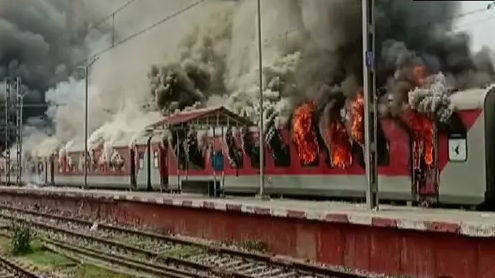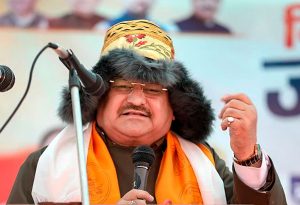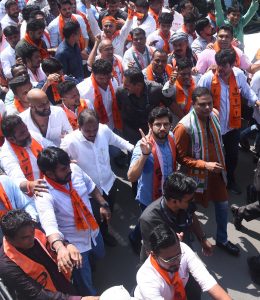A top military officer said Sunday that there is no question of a rollback in the decision to implement the radical Agnipath military recruitment scheme despite protests in several states. The latest update raised questions as to whether those who created unrest over the Agnipath scheme will be allowed to apply under it.
Speaking at a press conference, Lieutenant General Anil Puri, additional secretary, department of military affairs, said aspirants will have to give a written pledge they did not participate in violent protests against the plan.
“The Indian Army’s foundation lies in discipline. There’s no space for arson or vandalism. Every individual will have to give a certificate they were not part of protests or vandalism. Police verification is mandatory, no one can join without it,” Puri said
Also Read | Tri-services briefing on Agnipath scheme: Key highlights
Lt General Puri further said, “If any FIR is lodged against any of the candidates, they cannot join. There’s no place for indiscipline in the armed forces. All candidates will have to give a written pledge they did not indulge in any arson or violence.”
Protests against Agnipath began in Bihar on Wednesday, just a day after the scheme was rolled out. On Thursday, the protests took an ugly turn with many states witnessing arson and vandalism. The protesters mostly targeted trains, while public and government property was also torched.
Under ‘Agnipath’, recruits will join armed forces for a period of four years and will be called ‘Agniveers’.
After this period, 25 percent will be retained, on the basis of merit, for full service. Agniveers to get Rs 1 crore compensation if he’s martyred.
Also Read | Agnipath scheme: Will ‘Agniveer’ quota in paramilitary forces work?
Registration process for the first batch of Agniveers will start on June 24 and from July 24, phase 1 online examination process will begin.
Also, only for the first batch, the Union government has given a ‘one-time’ waiver, extending the upper age limit to 23 from the earlier announced 21. The lower age limit continues to be 17.5 years.





